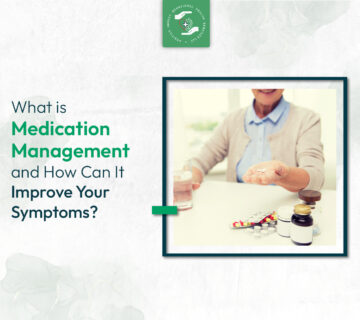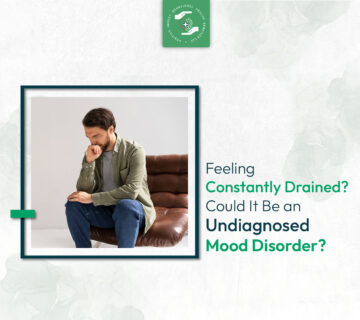In today’s fast-paced world, mental health has become a significant concern for many. Anxiety and depression are among the most common mental health issues, affecting millions globally. Understanding and managing these conditions is crucial for overall well-being. One of the most effective strategies in this regard is mental health monitoring. In this blog, we’ll delve into the importance of mental health monitoring, how it helps in managing anxiety and depression, and practical steps you can take to incorporate it into your daily routine.
Understanding Mental Health Monitoring
Mental health monitoring involves the regular assessment of your mental state to identify patterns, triggers, and changes in your emotional well-being. This can include self-assessment tools, journaling, and using mobile apps designed for mental health tracking. One way to understand mental health monitoring better is by considering it as a personal health diary. Imagine tracking your moods, anxiety levels, and depressive symptoms on a daily basis. This continuous observation not only helps you see trends but also aids in pinpointing specific events or activities that may be exacerbating your mental health issues. By keeping a consistent log, you get a clearer picture of your emotional health, enabling you to make informed decisions on managing your symptoms.
One of the key elements in mental health monitoring is the use of technology. Recent studies highlight the efficacy of mental health smartphone apps in managing symptoms of depression and anxiety. With the help of these apps, individuals can track their mood changes, sleep patterns, and even their physiological responses like heart rate variability, which are often linked to mental health conditions. The apps provide a streamlined and structured way to record your mental state and can offer tailored recommendations and reminders for self-care activities based on your entries.
In a clinical setting, mental health monitoring often involves more structured assessments conducted by professionals. For instance, at Positive Impact Behavioral Health, healthcare providers may employ psychological tests and questionnaires to gauge your mental health status. This comprehensive approach ensures that even subtle changes in your mental well-being are captured, allowing for timely interventions. Such professional assessments serve as a safety net, helping individuals stay on the right track and adjust their treatment plans as needed.
Mental health monitoring is not just about tracking negative emotions or symptoms. It’s equally important to monitor positive experiences, accomplishments, and moments of joy. Keeping a gratitude journal or noting down positive events can have a beneficial impact on your overall mental health. This balanced approach ensures that while you’re aware of your triggers and stressors, you’re also acknowledging the positive aspects of your life. Over time, this practice can significantly improve your mental resilience and provide a more balanced perspective on your emotional health.
The Importance of Monitoring Anxiety and Depression
Monitoring these conditions can help in early detection of symptoms, understanding their severity, and recognizing the impact of external factors. This awareness allows for timely interventions, reducing the risk of symptoms worsening. Early detection is crucial because the sooner you realize something is amiss, the quicker you can seek help or make adjustments to your self-care routine. For instance, if you notice that your anxiety spikes during specific times of the day, you can implement strategies like deep breathing exercises or mindfulness practices to mitigate these effects.
Moreover, consistent monitoring can reveal the influence of external factors on your mental health. For example, a stressful work environment or lack of social support can exacerbate symptoms of anxiety and depression. By recognizing these external triggers through regular monitoring, you can take steps to address or mitigate their impact. If your work is a significant stressor, perhaps you could discuss adjustments with your employer or allocate specific times for relaxation techniques throughout your workday. Understanding the root cause of your symptoms is a crucial step towards managing them effectively.
Monitoring also helps in recognizing the overlap of symptoms between anxiety and depression. According to Positive Impact Behavioral Health, it is common for individuals with depression to experience anxiety symptoms. By keeping track of your mental health, you can identify if these symptoms are co-occurring and seek comprehensive treatment that addresses both conditions. This holistic approach ensures that you receive a balanced treatment plan that considers all aspects of your mental health.
Tools and Techniques for Effective Monitoring
There are various tools and techniques available for mental health monitoring. These include mood tracking apps, therapy sessions, support groups, and cognitive-behavioral techniques. Each tool offers a unique way to keep track of your mental health status. For instance, mood tracking apps can be incredibly effective for individuals who prefer digital solutions. According to a recent meta-analysis, mental health apps significantly reduce symptoms of depression and generalized anxiety. These apps offer features like daily mood logs, symptom reports, and personalized tips, making it easier to stay on top of your mental health.
Therapy sessions and professional counseling are equally important tools for effective mental health monitoring. During these sessions, therapists employ various techniques to assess your mental state and provide targeted interventions. They may use cognitive-behavioral therapy (CBT) to help you identify and challenge negative thought patterns, or employ mindfulness techniques to enhance emotional regulation. Support groups also offer a collective way to monitor mental health. By sharing experiences and coping strategies with others facing similar issues, you can gain new insights and emotional support.
For those who prefer a more introspective approach, journaling is an excellent technique for mental health monitoring. Writing down your thoughts and feelings regularly can help you identify patterns and triggers that affect your mental health. You can also reflect on past entries to see how your emotional state has evolved over time, providing a long-term perspective on your mental health journey. Additionally, specific journaling prompts focusing on gratitude, stressors, or significant events can guide your self-reflection and make the monitoring process more structured and impactful.
Wearable devices and smart technologies are becoming increasingly popular tools for mental health monitoring. These gadgets can track physiological indicators like heart rate variability, sleep patterns, and physical activity levels, all of which are closely linked to mental health. By integrating these metrics with traditional mental health monitoring techniques, you get a more comprehensive picture of your well-being. This data can offer valuable insights into how your physical health impacts your mental state and vice versa. For example, poor sleep quality often correlates with increased anxiety and depressive symptoms, and addressing the physical aspect can significantly improve your mental health.
Integrating Monitoring into Daily Life
Incorporating mental health monitoring into your routine doesn’t have to be cumbersome. Simple practices such as daily journaling, setting reminders for self-assessment, and using mindfulness apps can seamlessly fit into your day-to-day activities. For instance, you could start your day with a quick mood check-in using a mobile app and end it by jotting down your thoughts in a journal. These small, consistent efforts can accumulate over time, providing you with a wealth of data on your mental health.
Mindfulness apps are particularly useful for integrating mental health monitoring into daily life. These apps offer various features like guided meditations, breathing exercises, and daily mindfulness tips that can help you stay present and aware of your mental state. According to Positive Impact Behavioral Health, technology has transformed mental health monitoring by providing real-time data and immediate feedback. This real-time feedback helps you make timely adjustments to your routine, whether it’s taking a short break to meditate or practicing deep breathing exercises to alleviate stress.
For those who prefer a more structured approach, setting specific times for mental health check-ins can be effective. For example, you could allocate five minutes in the morning and evening for a quick mental health assessment. Use this time to note down your mood, any significant events of the day, and how they made you feel. This consistent practice helps in creating a habit, making it less likely for you to miss these important check-ins. Over time, it can become as routine as brushing your teeth or having your morning coffee.
Another practical step is involving your social support system in your mental health monitoring. Share your monitoring practices with close friends or family members who can provide additional perspectives on your mental state. They might notice changes or triggers that you may overlook. This collaborative approach not only enhances your monitoring efforts but also strengthens your support network, providing emotional support when you need it the most. Additionally, discussing your mental health openly can reduce the stigma often associated with these conditions, making it easier for others to seek help as well.
Embracing Mental Health Monitoring for a Balanced Life
Mental health monitoring is not just a tool but a lifeline for those struggling with anxiety and depression. It offers a structured approach to understanding your mental health, recognizing triggers, and taking proactive steps to manage symptoms. By utilizing various monitoring techniques and tools, you can gain better control over your mental well-being and lead a more balanced life. Remember, seeking professional help and leveraging these monitoring tools can make a significant difference in your journey towards mental health.






No comment